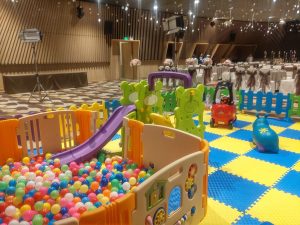https://www.youtube.com/watch?v=gqF1yBWseZM
In an industry where aesthetic presentation can significantly impact a sale, artificial intelligence are completely revolutionizing how properties are marketed to potential buyers. Virtual staging—the digital decoration of property images—has evolved dramatically through AI integration, creating unprecedented opportunities for property marketers.
The Business Case: Quantifying the Impact of AI Virtual Staging
Industry data from Real Estate Digital Transformation Report demonstrates that visually enhanced listings experience a 73% reduction in market time compared to homes presented without enhancements. Traditionally, physical staging costs between $3,000-$10,000 for a mid-range property, representing a substantial investment for many agents and sellers.
By contrast, AI-powered virtual staging generally runs $29-$99 per room, delivering a savings of about 97% compared to traditional staging methods.
Based on data from the Real Estate Staging Association, 82% of buyers’ agents report that visual enhancements help for prospects to envision the property as their future home. With digital AI enhancement, this psychological edge is attained at a dramatically reduced expense.
Industry reports from Redfin show that properties with AI enhancements generate 61% higher engagement on property websites than properties without staging, resulting in a greater number of potential buyers and quicker closings.
Technological Transformation: The Mechanics of AI Virtual Staging Outperforms Previous Solutions
Contemporary virtual staging platforms utilize complex AI architectures that fundamentally transform the quality of virtual furnishings.
Most notably, current generation systems employ convolutional neural networks trained on millions of professional staging examples, enabling the creation of ultra-realistic interiors that correctly maintain architectural constraints.
Rooomy, a prominent company in the virtual staging sector, notes that their newest artificial intelligence platform achieves a 98.3% positive rating from property agents for visual authenticity, compared to a 76% rating for previous generation solutions.
Technological improvements in lighting simulation have shown remarkable progress. Advanced AI visualization platforms now incorporate complex computational methods for processing ambient illumination within properties, enabling the generation of illumination patterns that accurately reflect time of day.
Industry leading solutions like roOomy incorporate specialized neural networks that can identify and process architectural features with precision nearing professional architectural measurements, achieving a margin of error of under 2%, as reported in objective analysis by Digital Housing Solutions.
Strategic Implementation: Tailoring Virtual Staging Utilize AI Virtual Staging
Luxury market properties constitute a especially valuable segment for AI virtual staging utilization. Research from Christie’s Real Estate indicates that premium real estate transformed through digital enhancements experience 30% shorter market times than similar unstaged properties.
Within high-end markets, tailored aesthetic approaches enabled by advanced AI systems permit prospective purchasers to envision alternative decorative approaches corresponding to their individual tastes. Coldwell Banker reports that homes providing alternative digital presentations create 48% greater appointment bookings than homes with limited visualization.
Unoccupied business locations require specific approaches that digital enhancement technology efficiently handles. As reported by Business Real Estate Weekly, virtually staged commercial listings see a 57% reduction in time on market compared to traditional presentations.
The multifamily sector has also implemented AI virtual staging with significant results. Apartment listings transformed through virtual furnishing achieve rental premiums of 8-12% and demonstrate a 40% reduction in non-occupied timeframes, based on Multifamily Executive.
Adoption Hurdles: Addressing Implementation Obstacles in AI Virtual Staging
Despite its merits, effective implementation of AI virtual staging encounters specific difficulties. Visual input specifications constitute a significant issue, with many digital platforms demanding quality visual inputs to function optimally.
Analysis performed by Property Marketing Alliance shows that best digital enhancement outcomes demand photographs at baseline quality of 4000 x 3000 pixels with proper lighting. Listings captured with inadequate equipment demonstrate a 64% higher rejection rate by AI staging systems.
Processing constraints still create difficulties for particular listing classifications. Atypical structural elements including irregular spaces can challenge current AI algorithms, causing a increased frequency of inaccuracies that require human intervention.
Disclosure obligations represent another practical concern. Currently, 83% of housing organizations demand clear notification that marketing visuals have been virtually staged, based on Property Marketing Ethics Committee.
Failure to disclose digital modifications can result in compliance issues, with financial consequences varying between $1,000-$10,000 for each infraction in particular areas.
Cross-Platform Functionality: Expanding Virtual Staging Impact for Maximum Impact
Particularly effective utilization methods integrate AI virtual staging with related systems to create comprehensive real estate presentation platforms.
Progressive agencies like Compass are merging property visualization systems with 3D virtual tours, developing integrated virtual presentations that permit interested parties to tour homes with AI-enhanced rooms.
Industry metrics from Matterport indicates that listings incorporating combined visualization technologies attract 385% higher engagement than homes employing conventional visuals only.
Combination with client management software represents another market benefit. Innovative real estate companies are leveraging AI capabilities to track what visual presentations create strongest response from particular client segments.
As an illustration, Future Home Realty indicates that their proprietary system combining virtual presentation with metrics has determined that millennial buyers exhibit 43% increased response with simplified current aesthetics, while senior purchasers prefer traditional designs by a factor of 37%.
Artificial intelligence are also transforming the property recommendation process. By analyzing prospect response metrics with different staged presentations, AI systems can determine what listings might appeal to specific prospects, enhancing success metrics by 27% based on Housing Innovation Alliance.
Innovation Pipeline: Upcoming Advancements for AI Virtual Staging
Industry analysts anticipate several significant developments in AI virtual staging technology within the next 12-24 months.
Individualization features form a primary development focus. Upcoming systems from companies like VirtualStaging.ai will incorporate machine learning algorithms that analyze prospect behaviors to generate personalized staging matching specific preferences.
Based on projections from Digital Housing Innovations, deployments of this tailored technology will increase conversion rates by an estimated 28-32% compared to present systems.
AR functionality represents another important innovation expected to transform the digital enhancement sector. Leading providers including Google are developing mixed reality technologies that will enable prospective purchasers to see digitally enhanced spaces using mobile devices while touring in person at properties.
Beta testing of these mixed visualization technologies demonstrate a 47% increase in purchaser certainty compared to traditional viewing experiences, based on Mixed Reality Housing Initiative.
A further development involves incorporating digital enhancement technology with predictive analytics to transform home pricing methodologies. Advanced systems from companies like Quantarium are starting to leverage machine learning algorithms that analyze how specific staging styles influence final sale prices.
Initial findings demonstrate that listings presented with AI-optimized designs tailored to local market preferences obtain value increases of 5.7-8.3% compared to standard approaches, possibly contributing tens of thousands to transaction values.
Adoption Roadmap: Best Practices for Real Estate Professionals
For real estate professionals aiming to implement AI virtual staging productively, industry experts recommend a methodical framework.
First, performing a cost-benefit analysis is essential. Though AI visualization is substantially cheaper than physical staging, optimal results demands budgeting for quality photography. High-performing agencies usually invest $300-$500 per property for quality images to provide superior digital enhancement outcomes.
Second, creating definite standards for openness and honesty about virtual staging protects against possible compliance problems. Progressive agencies uniformly incorporate clear notices on each property presentation indicating that photographs are virtually staged.
Furthermore, strategic integration of digital enhancement with supporting systems optimizes results. Market analysis from Real Estate Digital Transformation Initiative indicates that properties featuring AI enhancements and immersive experiences generate 86% more qualified leads than homes employing either technology alone.
In conclusion, preserving actual listings in shape that corresponds to virtual presentations is still crucial. Potential buyers who tour homes anticipating environments matching enhanced visuals but find significant discrepancies demonstrate a 68% reduced probability of submitting proposals, as reported by Property Marketing Ethics Research.
Conclusion: Market Advantage of AI Virtual Staging
As the real estate market increasingly digitalizes, AI virtual staging comprises not merely a cost-saving alternative but a strategic necessity for realtors aiming to maximize listing performance.
Given measurable effects on sales velocity, buyer engagement, and transaction values, implementation of these systems provides measurable benefits that substantially influence business performance.
As AI capabilities continue to advance, early adopters who develop proficiency in employing these technologies situate their businesses for continued professional success in an progressively virtual real estate marketplace.

